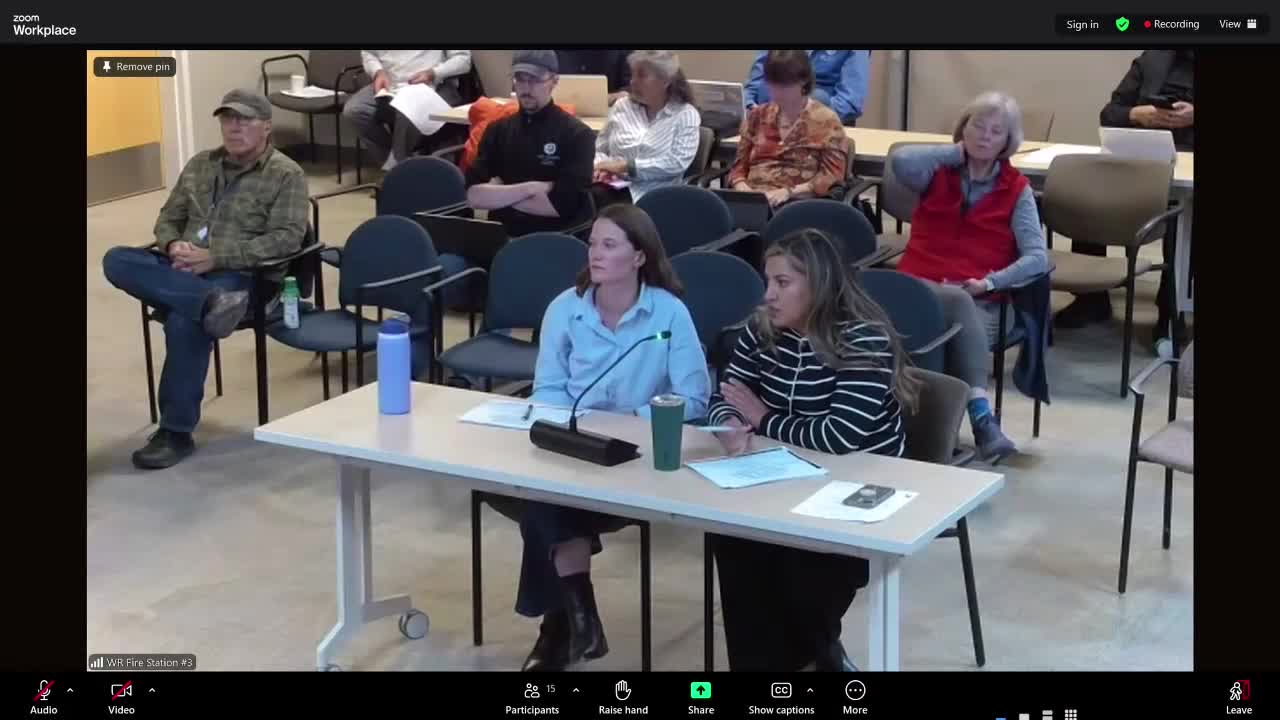Los Alamos sustainability board recommends next steps after plastic‑bag review; asks council for engagement guidance
Get AI-powered insights, summaries, and transcripts
Subscribe
Summary
The Environmental Sustainability Board presented research on single‑use plastic bags, estimating roughly 3.25 million bags a year are used in Los Alamos County and projecting a 10¢ paper‑bag fee could generate about $325,000 annually; the board asked council how it should engage businesses and the public before advancing regulation or a fee.
The Los Alamos County Environmental Sustainability Board (ESB) told council on Oct. 21 that single‑use plastic bags present environmental and recycling challenges and laid out options and tradeoffs for local action, including an outright ban or a 10‑cent paper‑bag fee similar to ordinances adopted elsewhere in New Mexico.
The ESB said county consumers use an estimated 3,250,000 single‑use plastic bags each year; curbside recycling does not accept plastic grocery bags and local collection bins are sent to out‑of‑state warehouses (Phoenix, Las Vegas or Seattle) where the ultimate reuse or disposal of those bags is uncertain. The board noted a county recycling contamination rate near 17 percent (the recent audit result) and said contamination disposal costs for the county work out to roughly $46 per ton — about $12,000 per year for contamination handling, the board reported.
Why it matters: The board framed the issue as both an environmental problem and an operational cost for county recycling operations. ESB officials said other New Mexico municipalities have adopted bans or fees and that Santa Fe and Las Cruces use their fee revenue for sustainability education and programs.
The ESB presented a range of considerations: environmental lifecycle comparisons of bag materials; the fact that HDPE grocery bags persist for long periods and fragment into microplastics; evidence that bag bans reduce visible plastic bag pollution in some cleanup metrics; and possible unintended consequences (including increased sales of trash bags). The board reviewed three municipal models in New Mexico, citing Santa Fe City, Santa Fe County and Las Cruces for different approaches (ban vs. fee, and different fee allocations).
ESB recommendations and numbers: The board said a 10‑cent fee with 1 cent retained by retailers and 9 cents remitted to the county could raise an estimated $325,000 annually using the board’s bag‑use estimate. The board suggested using any revenue for sustainability and waste‑reduction programs and noted most ordinances include common exemptions (restaurants, SNAP/EBT transactions, medical uses and some small retailers).
Board members said previous local efforts (2015 and 2019 petitions and a White Rock pilot bag fee) favored education over regulation at the time; ESB asked County Council for direction on public engagement and on whether the board should pursue a formal survey of residents and businesses. ESB staff also reported that Kroger/Smith’s earlier pledge to eliminate single‑use plastic bags by 2025 was not fulfilled.
Councilor questions and public comment focused on the fee’s design, likely revenue, exemptions, and whether a fee would serve primarily as revenue or as a behavior‑change tool. Members of the public spoke both for and against a ban and several urged a fee large enough to change consumer behavior; the Sierra Club representative urged a ban, while a virtual commenter favored a fee but opposed a ban.
What’s next: The ESB said it lacked the staff resources and stated comfort level to conduct a broad community engagement campaign on its own and requested direction from council on scope and approach (surveys, business outreach, a public meeting or a council‑led ordinance). The board noted lessons learned from Santa Fe and Las Cruces: ensure legal enforceability, plan how fee revenue will be used, and expect some administrative burden to track and audit retailer compliance.
